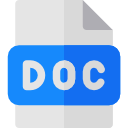Upaya Pemerintah Melawan Infodemic dengan Membangun Informasi Akurat
Abstract
kualitatif dengan observasi dan wawancara mendalam pada Humas Pemerintah di Kabupaten Klaten yang memiliki tingkat fatalitas tertinggi selama kuartal awal PPKM Darurat Level 4. Hasil penelitian ini menunjukkan bahwa terdapat lima kriteria informasi akurat yaitu sumber, waktu, kaidah jurnalistik, berbasis wilayah, dan paraf pimpinan yang diterapkan sebagai salah satu upaya dalam membangun informasi akurat COVID-19. Penelitian ini memberikan kontribusi dalam merumuskan implikasi kebijakan yang berpotensi berguna dalam penanganan infodemik di tingkat lokal dan nasional.
Keywords
Full Text:
PDFReferences
A. Ibrahim Almuttaqi. (2020). Kekacauan Respons terhadap COVID-19 di Indonesia. The Habibie Center Insights, 1(13), 1–7. http://habibiecenter.or.id/img/publication/66f28c42de71fefe1c6fcdee37a5c1a6.pdf
Abrams, M. A., & Dreyer, B. P. (2021). Effective Communication Techniques. Plain Language Pediatrics, 31–38. https://doi.org/10.1542/9781581104417-part01-ch04
Al Bakki, A. H. (2021). Dampak Corona Terhadap Konsumsi Data di Dunia. pantau.com
Annisarizki, A. A., & Surahman, S. (2022). Upaya Komunikasi Publik Pemerintah Kota Cilegon dalam Mengedukasi Masyarakat Di Masa Pandemi COVID-19. Jurnal Ilmu Komunikasi, 20(2), 170. https://doi.org/10.31315/jik.v20i2.4344
Araújo, C. A. Á. (2022). Infodemic: The New Informational Reality of the Present Times. Journal of Information Science Theory and Practice, 10(1), 59–72. https://doi.org/10.1633/JISTaP.2022.10.1.5
Ardiyanti, H. (2020). Komunikasi Pemerintahan Dalam Penanganan Pandemi Covid-19. Bidang Politik Dalam Negeri Info Singkat : Kajian Singkat Terhadap Isu Aktual Dan Strategis, 12(15), 25–30.
Arvisais-Anhalt, S., Lehmann, C. U., Park, J. Y., Araj, E., Holcomb, M., Jamieson, A. R., McDonald, S., Medford, R. J., Perl, T. M., Toomay, S. M., Hughes, A. E., McPheeters, M. L., & Basit, M. (2021). What the Coronavirus Disease 2019 (COVID-19) Pandemic Has Reinforced: The Need for Accurate Data. Clinical Infectious Diseases, 72(6), 920–923. https://doi.org/10.1093/cid/ciaa1686
Ashrafi-rizi, H., & Kazempour, Z. (2020). Information Typology in Coronavirus (COVID-19) Crisis; a Commentary. Archives of Academic Emergency Medicine, 8(1), e19. https://doi.org/10.22037/aaem.v8i1.591
Balakrishnan, V., Ng, W. Z., Soo, M. C., Han, G. J., & Lee, C. J. (2022). Infodemic and fake news – A comprehensive overview of its global magnitude during the COVID-19 pandemic in 2021: A scoping review. International Journal of Disaster Risk Reduction, 78, 103144. https://doi.org/10.1016/j.ijdrr.2022.103144
Black, S. (2013). Practice of Public Relations. In Practice of Public Relations. https://doi.org/10.4324/9780080938325
BPS Kab. Klaten. (2021). Perilaku Masyarakat Klaten pada Masa PPKM Darurat. In BPS Kab. Klaten.
Broom, glen M., & Sha, B.-L. (2013). Cutlip and Center’s Effective Public Relations. In Handbook of Public Relations (Eleventh E). PEARSON.
Bungin, B. (2017). Metodologi Penelitian Kualitatif. Raja Grafindo Persada.
Chen, X., Lee, W., & Lin, F. (2022). Infodemic, Institutional Trust, and COVID-19 Vaccine Hesitancy: A Cross-National Survey. International Journal of Environmental Research and Public Health, 19(13). https://doi.org/10.3390/ijerph19138033
Chowdhury, N., Khalid, A., & Turin, T. C. (2021). Understanding misinformation infodemic during public health emergencies due to large-scale disease outbreaks: a rapid review. Journal of Public Health (Germany). https://doi.org/10.1007/s10389-021-01565-3
Corner, J. (2017). Fake news, post-truth and media–political change. In Media, Culture and Society (Vol. 39, Issue 7). https://doi.org/10.1177/0163443717726743
Creswell, J., & Creswell, J. (2018). Research design: Qualitative, quantitative, and mixed methods approaches. Sage publications.
Dharma, A. A. S., & Kasim, A. (2021). Infodemi Covid-19 dalam Perspektif Open Government: Sebuah Tinjauan Literatur. JIIP: Jurnal Ilmiah Ilmu Pemerintahan, 6(1), 105–125. https://doi.org/10.14710/jiip.v6i1.10372
Germani, F., & Biller-Andorno, N. (2021). The anti-vaccination infodemic on social media: A behavioral analysis. PLoS ONE, 16(3 March). https://doi.org/10.1371/journal.pone.0247642
Gerwin, L. E. (2012). The Challenge of Providing the Public with Actionable Information during a Pandemic. Journal of Law, Medicine and Ethics, 40(3), 630–654. https://doi.org/10.1111/j.1748-720X.2012.00695.x
Gisondi, M. A., Barber, R., Faust, J. S., Raja, A., Strehlow, M. C., Westafer, L. M., & Gottlieb, M. (2022). A Deadly Infodemic: Social Media and the Power of COVID-19 Misinformation. Journal of Medical Internet Research, 24(2). https://doi.org/10.2196/35552
Global Infectious Hazard Preparedness. (2021). An overview of infodemic management during COVID-19. Who, May, 52. https://www.who.int/health-topics/infodemic#tab=tab_1
Griffin, E. A., McClish, G. A., & Griffin, E. (2012). A First Look at Communication Theory (8th ed.). Mc Graw Hill. http://www.amazon.com/First-Look-Communication-Theory/dp/0072291532
Gupta, A., Li, H., Farnoush, A., & Jiang, W. (2022). Understanding patterns of COVID infodemic: A systematic and pragmatic approach to curb fake news. Journal of Business Research, 140, 670–683. https://doi.org/10.1016/j.jbusres.2021.11.032
Hidayat, M. A. (2020). Cek Fakta: Pakar Ekonomi Sebut Thermo Gun Bisa Merusak Otak. Viva.Co.Id. https://www.viva.co.id/ragam/cek-fakta/1286121-cek-fakta-pakar-ekonomi-sebut-thermo-gun-bisa-merusak-otak?page=3
Ho, K. K. W. (2011). An Exploratory Study on the Information Quality Satisfaction of Central Cyber Government Office of the Hong Kong Government. In Encyclopedia of E-Business Development and Management in the Global Economy. https://doi.org/10.4018/9781615206117.ch060
Hoaxbuster. (2021). [SALAH] Ketua MUI Memperbolehkan Merapatkan Shaf Shalat. Hoax Buster. https://covid19.go.id/p/hoax-buster/salah-ketua-mui-memperbolehkan-merapatkan-shaf-shalat
Jaelani, T. (2021). Kemenkominfo Rilis Isu Hoaks Terkait PPKM Darurat dan Covid-19. Bekasikab.Go.Id. https://www.bekasikab.go.id/kemenkominfo-rilis-isu-hoaks-terkait-ppkm-darurat-dan-covid19
Kulkarni, et al. (2020). Infodemi Overtaking Pandemic? Time to Disseminate Fact Over Fear. Indian Journal of Community Health, 32(Special issue), 264–268.
LaPoe, B. R., Carter Olson, C. S., LaPoe, V. L., Jain, P., Woellert, A., & Long, A. (2022). Politics, Power and a Pandemic: Searching for Information and Accountability During a Twitter Infodemic. Electronic News, 16(1), 30–53. https://doi.org/10.1177/19312431211057488
Loukas, G., Murugesan, S., & Andriole, S. J. (2022). Information Hygiene: The Fight Against the Misinformation “Infodemic.” IT Professional, 24(2), 16–18. https://doi.org/10.1109/MITP.2022.3163007
Marshall, H., & Drieschova, A. (2018). Post-truth politics in the UK’s brexit referendum. New Perspectives, 26(3), 89–105. https://doi.org/10.1177/2336825x1802600305
Marwan, M. R., & Ahyad, A. (2016). Analisis Penyebaran Berita Hoax Di Indonesia. Jurusan Ilmu Komunikasi, Fakultas Ilmu Komunikasi, 5(1), 1–16. http://ravii.staff.gunadarma.ac.id/Publications/files/3552/ANALISIS+PENYEBARAN+BERITA+HOAX++DI+INDONESIA.pdf
Muzykant, V. L., Muqsith, M. A., Pratomo, R. R., & Barabash, V. (2021). Fake News on COVID-19 in Indonesia. In Pandemic Communication and Resilience. Risk, Systems and Decisions (pp. 363–378). Springer. https://doi.org/10.1007/978-3-030-77344-1_22
Nasucha, M., & Moenawar, M. G. (2020). Covid-19, Asimetri Dan Keterbukaan Informasi Publik. Media, Komunikasi, Dan Informasi Di Masa Pandemi COvid-19, 74–93. https://eprints.uai.ac.id/1465/
Oberlo. (2021). How Much Time Does the Average Person Spend on the Internet? In Oberlo. https://my.oberlo.com/statistics/how-much-time-does-the-average-person-spend-on-the-internet
Patel, M., Kute, V., & Agarwal, S. (2020). “Infodemic” of COVID 19: More pandemic than the virus. Indian Journal of Nephrology, 30(3), 188–191. https://doi.org/10.4103/ijn.IJN_216_20
Pousadela, I. (2020). Access to Information During a Pandemic - A Matter of Life or Death. Just Security. https://www.justsecurity.org/72557/access-to-information-during-a-pandemic-a-matter-of-life-or-death/
Prasasti, Ditha; Indriani, S. S. (2022). Strategi Komunikasi Kesehatan Pencegahan Lonjakan Kasus COVID-19 dalam Youtube Kemenkes RI. Jurnal Ilmu Komunikasi, 20 (3), 398–412. https://doi.org/10.31315/jik.v20i3.6349
Reis, H., & Sprecher, S. (2012). Encyclopedia of Human Relationships. In Encyclopedia of Human Relationships. https://doi.org/10.4135/9781412958479
Robert, C. P., & Augustine, M. O. (2020). Understanding The Concept Of Knowledge Gap And Knowledge Expansion : A Theoretical Perspective. Researchjournali’s Journal of Management, 7(3), 1–13. http://www.researchjournali.com/view.php?id=4899
Roosinda, F. W. (2022). Communications of the Government of Surabaya In the Socialization Protocol Health through the Account of @sapawargasby. Jurnal Ilmu Komunikasi, 19(3), 309. https://doi.org/10.31315/jik.v19i3.5546
Sarker, M. N. I., Raihan, M. L., Peng, Y., Chumky, T., Kamruzzaman, M. M., Shouse, R. C., & Deog, H. C. (2021). COVID-19: Access to Information, Health Service, Daily Life Facility and Risk Perception of Foreigners during Coronavirus pandemic in South Korea. Archives of Medical Science. https://doi.org/10.5114/aoms/141164
Senaharjanta, I. L., & Fendista, S. F. S. (2021). Infodemik Covid-19 dalam Perspektif Jean Baudillard (Studi Kasus Berita Hoaks Covid-19 di Website covid19.go.id). Cakrawala - Jurnal Humaniora, 21(2), 97–107. https://doi.org/10.31294/jc.v21i2.10072
Singh, N., & Banga, G. (2022). Media and information literacy for developing resistance to ‘infodemic’: lessons to be learnt from the binge of misinformation during COVID-19 pandemic. Media, Culture and Society, 44(1), 161–171. https://doi.org/10.1177/01634437211060201
Stephen W. Littlejohn, Foss, K. A., & Oetzel, J. G. (2012). THEORIES OF HUMAN COMMUNICATION Eleventh Edition. In Waveland Press, Inc. (Vol. 53, Issue 95). https://doi.org/10.1017/CBO9781107415324.004
Team, P. I. P. (2011). Principles of effective communication Scientific Evidence Base Review. UK Department of Health, 1–18. https://www.gov.uk/government/uploads/system/uploads/attachment_data/file/215678/dh_125431.pdf
Wahyono, T. (2004). Computer Based Computer Based Information System (CBIS). 1–5.
Wahyuni, H. I. (2020). Keriuhan Komunikasi. Yayasan Pustaka Obor Indonesia.
Wang, H., Li, L., Wu, J., & Gao, H. (2021). Factors influencing COVID-19 knowledge-gap: a cross-sectional study in China. BMC Public Health, 21(1). https://doi.org/10.1186/s12889-021-11856-9
Yusri, M. (2013). TEORI KOMUNIKASI MASSA (Analisis Kontemporer terhadap Teori Information Gaps). Jurnal Al-Bayan, 19(27), 10.
Zhang, X., & Ghorbani, A. A. (2020). An overview of online fake news: Characterization, detection, and discussion. Information Processing and Management, 57(2). https://doi.org/10.1016/j.ipm.2019.03.004
DOI: https://doi.org/10.31315/jik.v21i2.8342
Refbacks
- There are currently no refbacks.
Copyright (c) 2023 Jurnal Ilmu Komunikasi
Jurnal Ilmu Komunikasi indexed by:
Copyright of Jurnal Ilmu Komunikasi ISSN 1693-3028 (print), ISSN 2407-8220 (online)
Alamat:
Kampus II UPN "Veteran" Yogyakarta, Jl. Babarsari 2, Tambakbayan, Yogyakarta 55281
Phone: (0274)485268
Fax: (0274)487147
Email: jik@upnyk.ac.id










